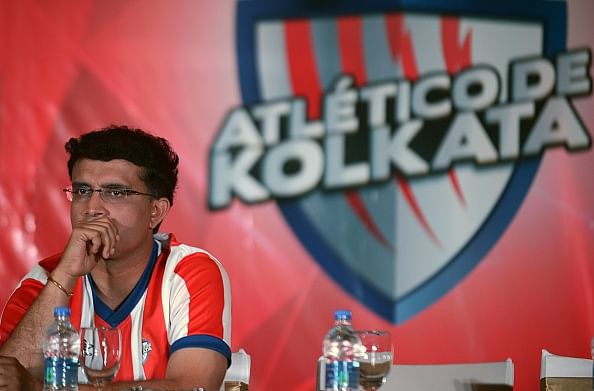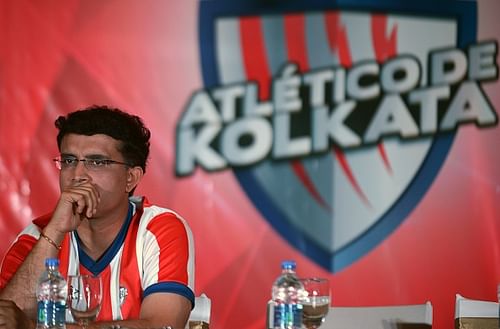
Indian Super League backers mean business

It is around 10pm Spanish time and Atletico de Kolkata’s technical staff, manager Antonio Lopez and players are buzzing with sheer excitement within the confines of the Vicente Calderon, home of Atletico Madrid. For a week of pre-season training, they have been training daily alongside the luminous likes of Jorge Koke, Mario Mandzukic and Antoine Griezmann at Atletico’s Ciudad Deportiva De Majadahonda training facility and, for the last 45 minutes, they have been lapping up the eccentric atmosphere within the sensational Vicente Calderon. But this is the moment they have been waiting for, and truth be told, what Indian football had been calling for.
Atletico are leading 2-1 against a resilient Celta Vigo team in a La Liga match of great adversity but a goal from captain Diego Godin as half-time approached has the Vicente Calderon at their extraordinary best. Stunned, Atletico de Kolkata move from their seats in the hospitable VIP box and are stood in the tunnel. “Enjoy this moment, cherish it,” says the club’s co-owner Sourav Ganguly and, led by Lopez, they are received rapturously. And in this current climate, the Hero Indian Super League will be subject to a reception of the similar jubilant ilk.
A league of such gloss and prestige is the antidote to the malaise which had gripped Indian football, a sporting sector which had suffered from the lack of clear direction and ambition. There is something extremely similar about the ISL, perhaps the billions investing in making it possible likening accurately to the rapid rise of football in the Gulf states. At long last, India, a nation starved of an entertaining, enterprising domestic football competition, has reward for its passion and unerring love for football.
The ISL was greeted with delirium from football fans who had turned to supporting European clubs to satisfy their passion. Hundreds of FC Goa fans flocked to Mumbai’s Chhatrapati Shivaji International Airport to welcome Robert Pires, the club’s marquee signing, and with the current rate of luminous arrivals, India will be entranced.
The mercurial likes of Pires and Alessandro Del Piero will do little to dissuade excited Indians, the sensational influx of legendary stars enriching the league’s appeal. Only a matter of hours ago, FC Goa announced Andre Santos, formerly of Arsenal and Brazil, as a globally renown acquisition to compliment the plethora of international stars persuaded to spearhead Indian football’s renaissance, per ISL CEO Anupam Dutta. Not that Santos is the most glamorous footballer but, regardless of his adversities at Arsenal, his status as a Brazilian international will inevitably add sparkle to a glittering league.
Then there is David Trezeguet, FC Pune City’s marquee signing and a potent goal-scorer. 138 goals in 245 appearances for Juventus speak for themselves. The Italian Serie A theme is further accentuated by Marco Materazzi’s role of player/manager at Chennaiyin FC, where the defender, infamous for his head-butting episode with Zinedine Zidane, will coach Mikael Silvestre and Elano Blumer, both formely of Manchester United and Manchester City respectively.
Yet, in spite of the seemingly unstoppable flow of venerated foreign imports, the ISL’s purpose is clear and resounding, its benefits for the Indian national team publicly hailed by Dutta and co. The aim is for India, powered by the ISL, to become a global football power and qualify for the 2026 FIFA World Cup.
With many of ISL’s eight franchises assissted by their European partners, the hope is that investment in grassroot football will produce the next generation of Indian footballing stars. Although designated to entrance and entertain a nation long devoid of an enviable football competition, the tournament’s inception holds particular attractions.
Ties with foreign clubs often results in skilled and qualified coaches working with Indian kids and the general scope of Indian football transforming fruitfully. The entire FC Pune City techinical staff will be Italian coaches previously hired by ACF Fiorentina while Delhi Dynamos’s enviable affiliation with Dutch club Feyenoord, a club heralded for its youth development, is a promising development.
Then there is the geography of the ISL to consider, purposely spread across the nation. From Delhi in the north to Mumbai in the west to Kolkata in the east to Kerala and Chennai in the south, ISL’s purpose is clear and innovative. Its backers mean business.